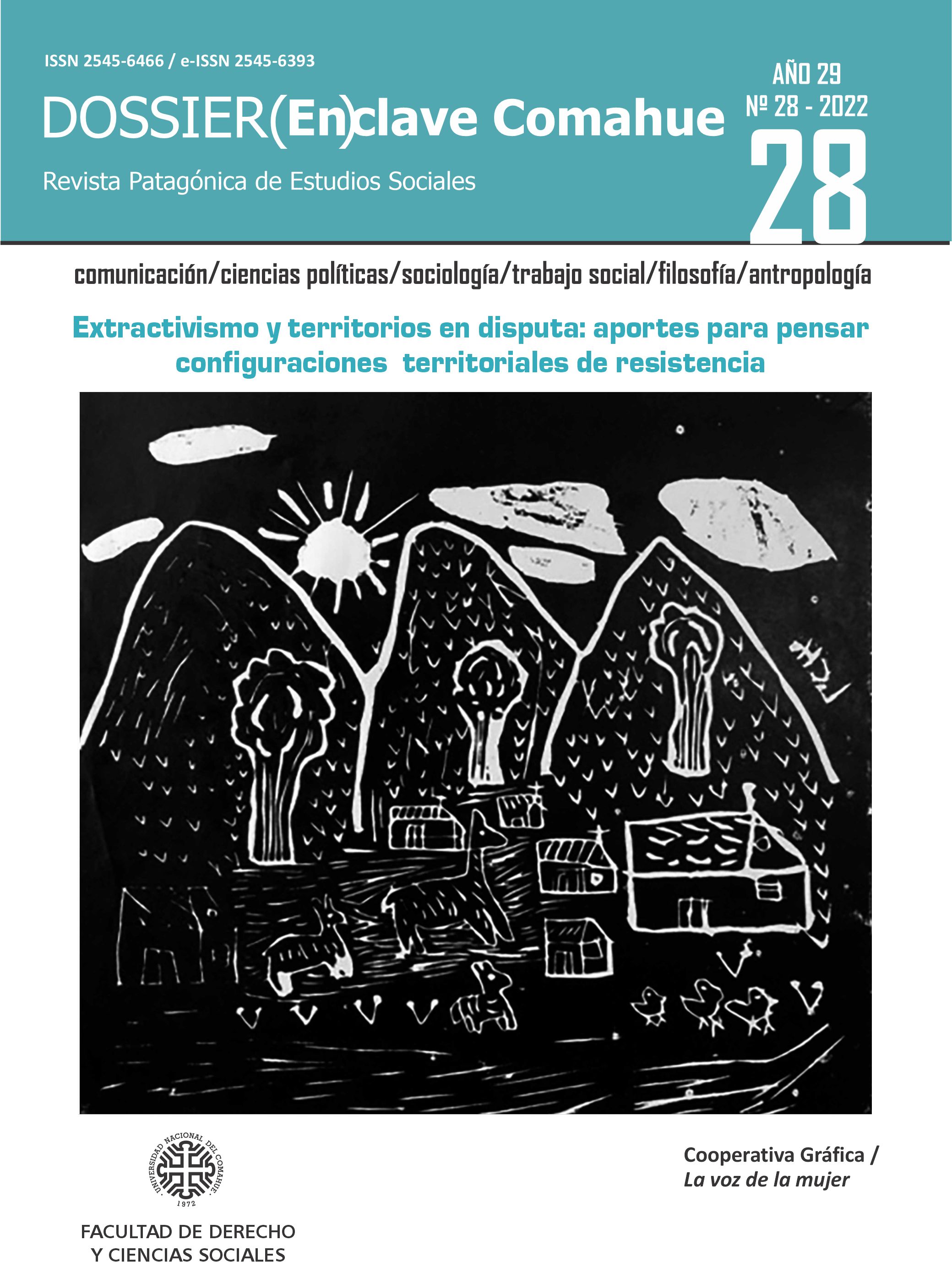The anti-dam movement in Misiones: the case of the Mesa Provincial No a las represas
Abstract
In this paper we analyze the Mesa Provincial No a las Represas de Misiones, a movement that emerged in response to the attempt to proceed with the building of the Garabí-Panambí hydroelectric power station. This space brought together organizations and assemblies opposed to this plant, which would be located on the Uruguay River, on the border between Misiones, Corrientes and Rio Grande do Sul, and was part of the Initiative for the Integration of Regional Infrastructure in South America (IIRSA).
This article is based on the understanding that, in the face of the advance of capitalist territoriality over these territories, these movements seek to defend their modes of use and appropriation of space. The advance of capital implies the reconfiguration of these geographical spaces, the destruction of existing territorialities and the construction of a new spatiality.
For our analysis, we used a methodology that combines in-depth interviews and bibliographic and documentary review.
We conducted two interviews with members of the Mesa, where we focused on recovering the processes of resistance, the history linked to the anti-dam movement, the articulations with other groups and the range of collective courses of action implemented.
usechatgpt init successDownloads
Downloads
Published
How to Cite
Issue
Section
License
Copyright (c) 2023 Diana Melón

This work is licensed under a Creative Commons Attribution-NonCommercial-ShareAlike 4.0 International License.
Los autores de los artículos publicados conservan los derechos de autor y garantizan a la revista el derecho a ser la primera publicación. Los autores podrán adoptar otros acuerdos de licencia no exclusiva de distribución de la versión de la obra publicada (p. ej.: depositarla en un repositorio institucional o en sus sitios personales) siempre que se indique la publicación inicial en esta revista.
Los artículos se publican bajo la licencia de Creative Commons Reconocimiento-NoComercial-CompartirIgual 4.0 Internacional, mediante la cual se permite copiar, reproducir, distribuir, comunicar públicamente la obra y generar obras derivadas, siempre y cuando se cite y reconozca al autor original. No se permite utilizar la obra ni sus posibles obras derivadas con fines comerciales.
ACLARACIÓN: En números anteriores al año 2017 se utilizó la licencia Creative Commons BY-NC-ND para la publicación de los artículos.







